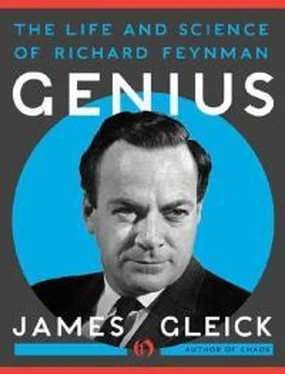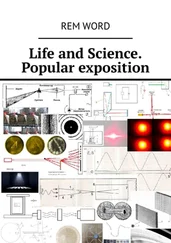Letters went back and forth almost daily. They wrote like
a boy and a girl without experience at the art of love letters.
They catalogued the everyday—how much sleep, how much money. Macy’s sent Arline an unexpected mail-order refund of forty-four cents: I feel like a millionaire … I.O.U.
22¢. His sporadic bad digestion or swol en eyelid; her waning or waxing strength, her coughed-up blood and her access to oxygen. They used matching stationery. It was a mail-order project of Arline’s—soon most of her relatives and many of Richard’s friends on the hil had the same green or brown block letterhead from the Dol ar Stationery Company. For herself she ordered both formal (Mrs.
Richard P. Feynman) and informal, with the same legend she had once caught Richard slicing from her pencils: RICHARD DARLING,
I LOVE YOU
PUTZIE
She decorated the envelopes with red hearts and silver stars. The army decorated them with tape: OPENED BY U. S.
ARMY EXAMINER.
They cal ed each other “Dope” and then worried about whether they had given offense. You’re never that — just silly & cute & lots of fun — you know what I mean, don’t you coach? Alone in her cramped sanatorium room, decorated with a few pictures and knickknacks received as wedding gifts, Arline worried about Richard and other women. He was a popular dancer at Los Alamos parties; he flirted intently with nurses, wives, and a secretary of
Oppenheimer’s. Al it took to set Arline’s mind racing was an offhand mention of the wife of a col eague. Or worse: the scientists were in an uproar over the appearance of M.P.’s around a women’s dormitory (the army had discovered an active prostitution trade there), and for some reason Richard had been chosen to lead the protest. He reassured her continual y. Everything is under control — & I love you only. She explained and reexplained the facts of their love like an incantation: he is tal , gentle, kind, strong; he supports her, but once in a while can lean on her, too; he must confide everything in her, as she has slowly learned to confide in him; we have to think in terms of us, always; she loves the way he stretches casual y to open a high window beyond her reach, and she loves the way he talks babytalk with her.
Not until the beginning of this grim year did they make love. Their gingerly discussions had led nowhere. He was afraid of taking advantage, or afraid of harming her, or just afraid. Arline grasped ever more tightly her sense of romantic love. She read Lady Chatterley’s Lover (“No!” she said. “Love me! Love me, and say you’l keep me. Say you’l keep me! Say you’l never let me go, to the world nor to anybody!”) and a popular 1943 book, Love in America . “I do not know—although there are those who profess to know with mathematical accuracy—whether sex is al -
important in the life of a man or a woman,” the author wrote provocatively. Americans lag Europeans in such matters.
“We have developed no concepts of love as an art or a
rite… . We do not seem to realize that woman’s love is not prompted by good deeds on a man’s part or by Boy Scout conduct; that neither gratitude nor pity are love; that loving lies in demanding as wel as in giving; that the woman who loves yearns to give and give again.”
Arline herself final y made the decision and set aside a Sunday when she would al ow no other visitors. She missed him spiritual y and physical y, she told him.
Darling I’m beginning to think that perhaps this restlessness I feel within myself is due to pent up emotions—I real y think we’d both feel happier and better dear if we released our desires.
She wrote Richard a few days before to tel him it was time.
She could not sleep. She clipped a phrase from a newspaper advertisement: “OUR MARRIAGE COMES FIRST.” She reminded him of the future that waited for them: just a few more years in bed for her; then he would be a renowned professor ( physicist stil did not denote a profession with stature) and she a mother. She apologized, as she so often did, for being moody, for being difficult, for saying hurtful things, and for having to lean on him without respite. Her thoughts rambled.
… We have to fight hard—every inch of the way—
we can’t slip ever—a slip costs too much… . I’l be al a women would be to you—I’l always be your sweetheart
& first love—besides a devoted wife—we’l be proud parents too—we’l fight to make Donald real—I want
him to be like you… . I am proud of you always Richard
—your a good husband, and lover, & wel , coach, I’l show you what I mean Sunday.
Your Putzie
False Hopes
Her health continued to fail. “Drink some milk!” Richard wrote in May. Her weight had fal en to eighty-four pounds.
She looked like a woman starving.
You are a nice girl. Every time I think about you, I feel good. It must be love. It sounds like a definition of love. It is love. I love you.
I’l see you in two days.
R. P. F.
More and more they talked of medical tests. They needed optimism. He was near despair. Time passes fast. Maybe we should start looking for another doctor… . Why don’t you drink an extra bottle of milk right now while you are thinking of it.
The scientific knowledge that empowered the physicists seemed to mean nothing on the soft soil of medicine. With the final desperation of the dying, Richard and Arline reached out for slender possibilities. He had heard about a new drug, sulf-something—he was not sure—and had written to researchers in the East, who told him
apologetical y that studies of sulfabenamide were in the most preliminary stage. The discovery that substances of the sulfonamide family retarded bacterial growth was not yet a decade old. They were destined to prove poor substitutes for true antibiotics.
Now Richard was writing to faraway doctors again. It seemed that Arline was pregnant. After ending the celibacy of their marriage, she had immediately missed her menstrual period. Was it possible? They were frightened and jubilant at once. Richard did not tel his parents, but he told his sister, now a col ege student. Joan was dazzled at the prospect of becoming an aunt. They talked about names and began making new plans. Yet to Richard it stil seemed that Arline was wasting away. He thought he saw symptoms of starvation. Perhaps no rational observer could have construed the cessation of menses at this stage of the disease as a sign of pregnancy, but that was how they construed it. The alternative was so grim. Their doctors saw little reason for hopefulness. The chief physician from the sanatorium in Browns Mil s, New Jersey, advised urgently that any pregnancy must be “interrupted”—“have it done by a specialist.” Then a pregnancy test gave a negative result after al . They did not know what to think. A doctor at Los Alamos told Richard that the tests were notoriously unreliable but that they could try again at an Albuquerque laboratory. He thought the laboratory had the necessary rabbits for the Friedman test.
The same doctor said he had heard of a new substance made from mold growths—“streptomicin”?—that seemed
to cure tuberculosis in guinea pigs. If it worked, the doctor thought it might soon become widely available. Arline refused to believe the negative pregnancy result. She wrote cryptic remarks about “P.S. 59-to-be.” The same day a nurse wrote Feynman from the sanatorium to say that Arline had been spitting blood. He opened his encyclopedia yet again. Nothing. He drifted through the pages: tuberculosis , tuff , tularemia … Tuff was a kind of volcanic rock; Tunicata an animal group. He wrote Arline another letter. “Tumors you know about & Turkey, the country, also.” Some days she was now too weak even to write back. He grasped his uncertainty. Not knowing was frustration, anguish, and final y his only solace.
Читать дальше












